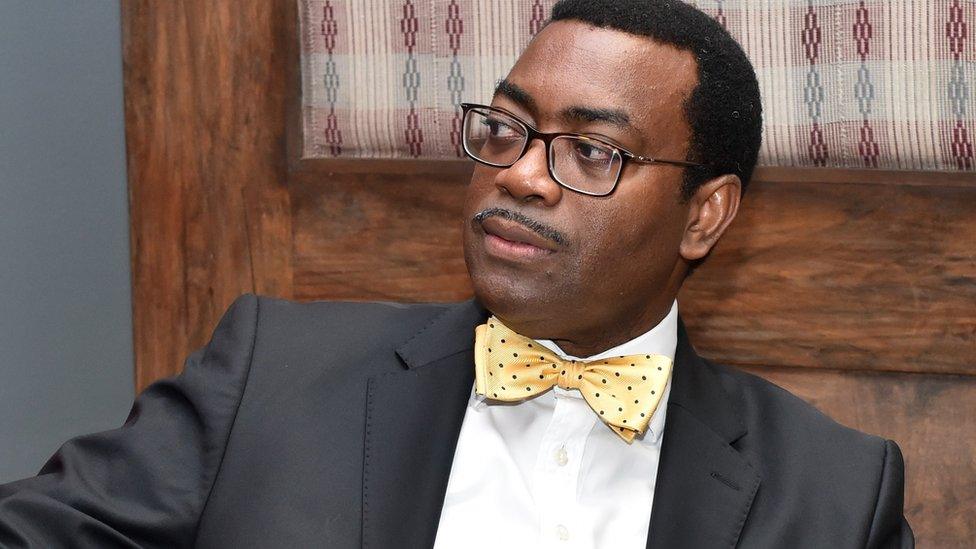Bayo Onanuga, the Special Adviser to President Bola Tinubu on Information and Strategy, has criticized the President of the African Development Bank (AfDB), Akinwumi Adesina, for claiming that Nigerians today are worse off than in 1960.
Onanuga, on Monday via his X page, said Adesina’s claim that Nigeria’s GDP per capita in 1960 was $1847 and that it is $824 today was questionable.
He wondered how Adesina arrived at the conclusion, noting that the figures do not align with available data.
“According to available data, our country’s GDP was $4.2 billion in 1960, and per capita income for a population of 44.9 million was $93—ninety-three, not even one hundred dollars,” he said.
“Our country’s GDP did not rise remarkably until the 1970s, when crude earnings ballooned. In 1970, our GDP rose to $12.55 billion. In 1975, it was $27.7 billion, $64.2 billion in 1980, and $164 billion in 1981.
“Up until 1980, per capita income did not exceed $880. It rose to $2187 in 1981 and dropped to $1844 in 1982. In 2014, after rebasing, it reached an all-time high of $3,200.”
Read Also: Onanuga dismisses Osinbajo’s claim of Babaginda tormenting Tinubu
He described Dr. Adesina’s criterion used to determine GDP per capita and the standard of living for Nigerians as a poor tool for assessing living standards.
“Its primary usefulness is in giving us the metrics to compare economic output in a country or between countries,” he added. “GDP masks many activities in a country’s economy.”
Explaining further, he said, “It neither discloses wealth distribution or income inequality nor accounts for the informal economy, which experts have said is enormous. It does not account for subsistence farming or income transfer from one family member to another.”
Backing his assertion, Onanuga analyzed that Nigeria has witnessed significant improvement and development between 1960 and 2025 in GDP per capita.
He highlighted that, as of 2025, the country has more infrastructure across primary, secondary, and tertiary schools, including medical facilities, both private and public.
On this note, he questioned on what basis Dr. Adesina arrived at his conclusion that Nigerians’ standard of living is worse than in 1960, when Nigeria marked her independence.
“We have phenomenal access to telephones,” he said.
As of when Nigeria marked her independence, Mr. Onanuga shared that, out of a population of 45 million, only 18,724 operational phone lines were in use.
Supporting his point, he said currently, over 200 million Nigerians have access to mobile phones—evidence that the country has improved compared to 65 years ago.
He reiterated that GDP figures published by the National Bureau of Statistics (NBS)—if they do not include the informal economy, depth, and breadth of Nigeria’s economy, which some policymakers believe exceeds the formal economy—are inaccurate.
With this analysis, he urged Dr. Adesina to consider all aspects before making his conclusion.
Flashing back, he disclosed that between 1999 and 2000, Vodacom, a telecommunications company, refused to establish operations in Nigeria because they perceived Nigerians were too poor to purchase GSM services, based on GDP data presented during consultations.
“However, MTN and other companies that entered the market later proved them wrong, demonstrating that GDP figures alone do not provide a complete picture of a country’s economic potential or the living standards of its people.”
For over 20 years of operation, despite the economic hardship faced in 2023 and 2024, MTN and other investors are still present in Nigeria, citing the country’s potential as a reason they remain.
“In its first-quarter results this year, MTN declared revenue of N1 trillion and an increase of 8.2 per cent in subscriptions, which took the number of its voice and data users to 84 million.”
Questioning the facts raised by Dr. Adesina, he said, “Does this MTN experience correlate with a country worse off than in 1960, when we had analogue telephones and the number of lines was fewer than 20,000?
“No objective observer can claim that Nigeria has not made progress since 1960. Today, as we await the NBS’s recalibration of our GDP, we can comfortably say without contradiction that it is at least 50 times, if not 100 times, more than it was at Independence.
“Adesina spoke like a politician, in the mould of Peter Obi, and did not do due diligence before making his unverifiable statement,” he concluded.



